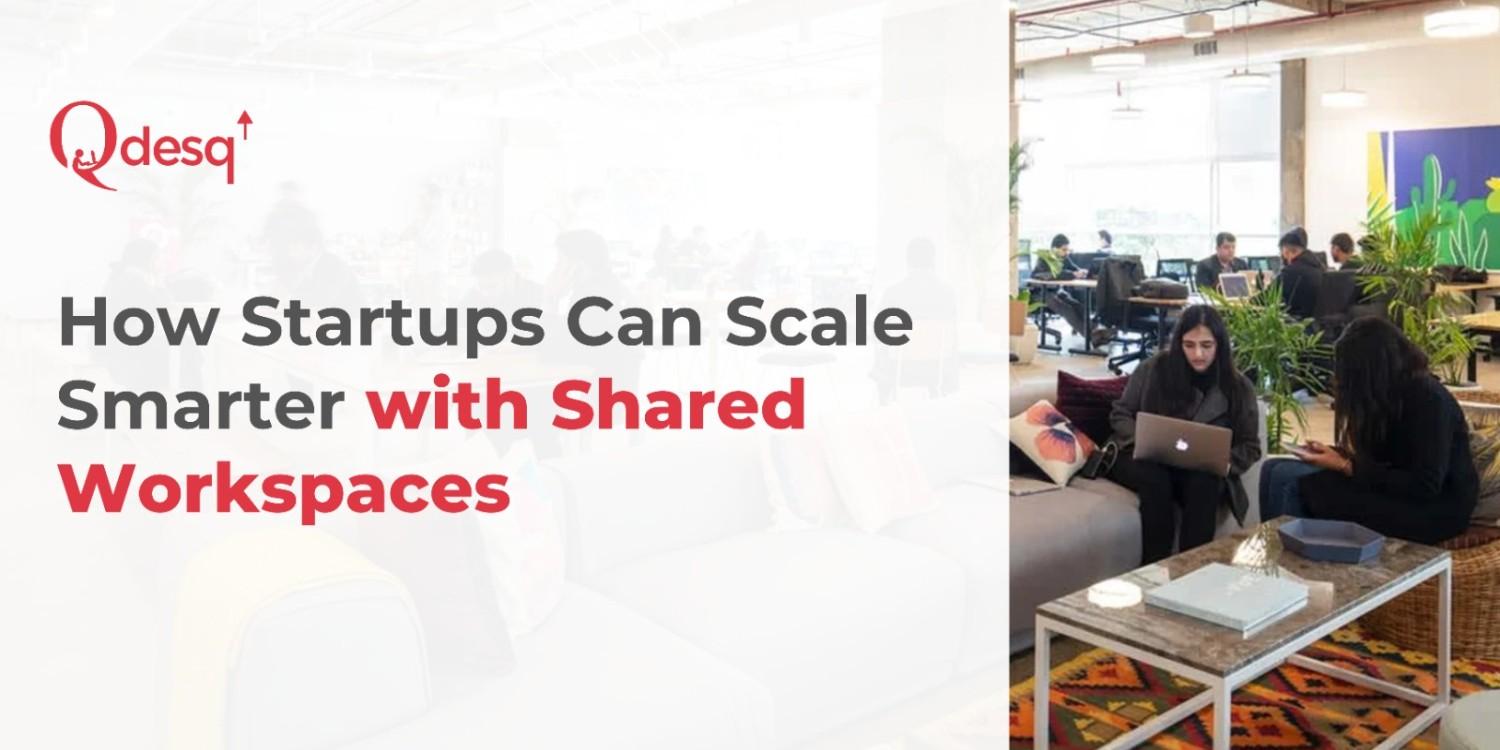Startups grow fast — and not always in a straight line. One month you’re hiring quickly, the next you’re rethinking your plans. In this uncertain and fast-moving environment, signing long office leases or setting up a traditional office doesn’t always make sense. What startups need is flexibility — a space that grows with them. That’s why more and more founders are turning to shared workspaces.
Why Shared Workspaces Work Well for Startups
Shared workspaces — like coworking spaces or managed offices — are designed to be flexible, easy, and cost-effective. They give startups access to ready-to-use offices without spending time or money on setup. Whether you’re a team of 2 or 20, these spaces let you plug in and start working immediately.
For startups, this means no long-term contracts, no significant upfront costs, and the ability to grow or shrink your space as your team changes. It’s a more innovative way to work when things are moving fast.
Why Shared Workspaces Make Strategic Sense
For high-growth companies, scaling isn’t just about adding headcount—it’s about expanding with precision. In a market where agility is everything, shared workspaces have evolved from a temporary solution into a smart, scalable real estate strategy. Here’s why.
1. Lower Costs, Higher Agility
Traditional offices come with upfront capex—fit-outs, deposits, furnishing, IT infrastructure. Shared workspaces eliminate that. Companies pay only for what they use, with zero setup time and no hidden operating costs. This lean structure improves cash flow, especially during rapid expansion or market testing phases.
2. Flexible Terms for a Dynamic Workforce
Markets change. So do team sizes. Shared workspaces offer short-term leases, expandable seating, and multi-location access—all without long-term lock-ins. Whether you’re hiring aggressively or consolidating teams, your real estate footprint adapts in real time.
3. Faster Market Entry
Time-to-market matters. In cities like Bengaluru, Gurgaon, or Hyderabad, finding, designing, and operationalising a traditional office can take 4–6 months. Shared workspaces let you start operations in as little as 48–72 hours, helping you seize market opportunities without delays.
4. Infrastructure That Supports Performance
Modern shared offices offer more than just desks—they come with enterprise-grade internet, access control, tech-enabled meeting rooms, ergonomic furniture, and managed facilities. This means your team walks into a space that’s designed for productivity from day one.
5. Talent Attraction and Experience
Employees today expect more from workplaces—natural light, wellness spaces, collaborative zones. Shared workspaces deliver this in prime business districts, giving companies an edge in recruitment and retention without the cost of Grade A real estate.
6. Operational Ease and Focus
Everything—from cleaning and pantry to IT and facility management—is handled. Your teams focus on what matters: business. Shared offices reduce managerial bandwidth spent on non-core tasks by over 60%, according to CBRE’s Flex Market report (2024).
7. Built-in Community and Visibility
Being surrounded by startups, scale-ups, and global firms fosters collaboration, learning, and brand visibility. For businesses entering new geographies, the network effect of shared spaces can accelerate growth in ways traditional offices can’t.
Real-Life Success Examples
Shared workspaces have become a launchpad for numerous startups, providing the flexibility and resources needed to grow efficiently. Here are some notable examples:
In its early days, Instagram operated out of a coworking space. This environment offered physical infrastructure and access to a community of innovators and potential collaborators. The shared workspace provided the flexibility and networking opportunities that supported Instagram’s rapid growth into a global social media platform.
Airbnb
Airbnb’s founders began their journey in a San Francisco coworking space. The collaborative environment allowed them to refine their platform, connect with early users, and receive valuable feedback. The coworking space’s community was pivotal in shaping Airbnb’s approach to building trust and community among hosts and guests.
Spotify
Spotify’s creators initiated their venture in a shared workspace in Stockholm. The coworking environment fostered creativity and provided access to a network of tech enthusiasts and potential collaborators. This setting was conducive to brainstorming and refining Spotify’s user-centric music streaming service.
Choosing the Right Shared Workspace
Not all shared workspaces are the same. When picking one for your startup, keep these points in mind:
- Location: Choose a space that’s easy to reach for your team and clients.
- Amenities: Look for meeting rooms, breakout areas, internet speed, and pantry services.
- Room to Grow: Make sure the space can scale with you. Check if they offer flexible plans or private offices.
- Community: Some workspaces have a strong startup network. This can help with hiring, partnerships, or even business growth.
- Expert Help: Instead of searching independently, platforms like Qdesq help you compare and book workspaces that fit your needs, without the hassle.
Conclusion: Scale Smart, Stay Agile
In the fast-paced world of startups, adaptability isn’t just an advantage—it’s a necessity. With their long-term leases and hefty overheads, traditional office setups often hinder the nimbleness that startups require. Shared workspaces emerge as a strategic solution, offering flexibility, cost-efficiency, and a collaborative environment conducive to innovation.
By embracing shared workspaces, startups can allocate resources more effectively, scaling operations up or down as needed without the constraints of conventional office commitments. This approach conserves capital and fosters a dynamic culture where ideas can flourish amidst a community of like-minded professionals.
Platforms like Qdesq simplify this transition, providing startups access to diverse workspace solutions tailored to their unique needs. Whether you’re a budding entrepreneur or an established startup poised for expansion, leveraging shared workspaces can be the catalyst that propels your venture forward.











